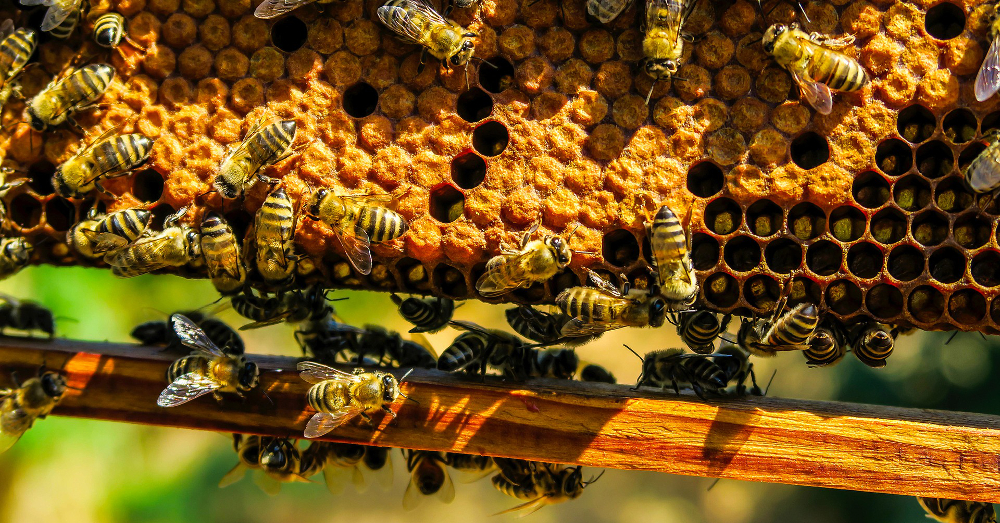
Bee Study Author Fights Back Against Bayer and Syngenta Accusations
The lead author of a major study which found that neonicotinoid pesticides harm honey bees has hit back against criticism from the chemical companies that part-funded the work.
Dr. Ben Woodcock from the Centre for Ecology and Hydrology (CEH), said Bayer and Syngenta, which produce the controversial pesticides, had looked to undermine his work after it was published, despite providing $3 million in funding.
July 17, 2017 | Source: EcoWatch | by Joe Sandler Clarke
The lead author of a major study which found that neonicotinoid pesticides harm honey bees has hit back against criticism from the chemical companies that part-funded the work.
Dr. Ben Woodcock from the Centre for Ecology and Hydrology (CEH), said Bayer and Syngenta, which produce the controversial pesticides, had looked to undermine his work after it was published, despite providing $3 million in funding.
Speaking exclusively to Energydesk, he said:
“From a personal perspective, I don’t really appreciate having them accuse me of being a liar. And accusing me of falsifying results by cherry-picking data. That’s not what we’ve done. I’ve got little to gain from this and it’s been a major headache. We just present the results we get.”
‘Utterly Unfounded’
Both companies have accused the scientists of overstating the threat posed by neonicotinoids to both honey and wild bees, adding that the data, as they saw it, did not reflect the conclusions from CEH.
After the study was published a Bayer spokesperson told Energydesk:
“This study is one of a number of landscape studies carried out recently. The results of the CEH study are inconsistent and therefore inconclusive with variability of effects over both the bee species and the countries in which they were studied.”
The company’s head of UK government media relations, Dr. Julian Little, told Energydesk: “We’re quite frustrated about how these results have been portrayed. The reality seems to be a long way away from the headline.”
Syngenta’s environmental specialist Peter Campbell told the press that CEH had misrepresented the study and argued that full results of the experiments showed neonicotinoids had no effect in the vast majority (238 of the 258) of the 258 potential effects measured.
Quoted in The Times, Campbell also suggested the results had been talked up in order to get published in a prestigious journal.
He said: “There is a pressure to get papers published. Any journal, particularly journals like Nature and Science, it has to be an interesting story. We don’t get into Science and Nature with a study which says, for example, no effect of oilseed rape treated with [neonicotinoid] on solitary bees. It’s not that interesting a story.”
Woodcock said the accusations made by Bayer and Syngenta were “utterly unfounded.”
“I’m intrigued to know what they would’ve wanted us to do. If you find negative results on key metrics—number of bees in hives, number of bees surviving after winter—how would they want us to present that? How could we interpret this in what they see as an unbiased way?
“Science papers are short. There about 1,500 words. The discussion is tiny on this. It’s like a paragraph. So it’s not like we spent vast amounts of time discussing the details of this. You literally present the results more or less as they are, along with some broad statements on what you observed.”
